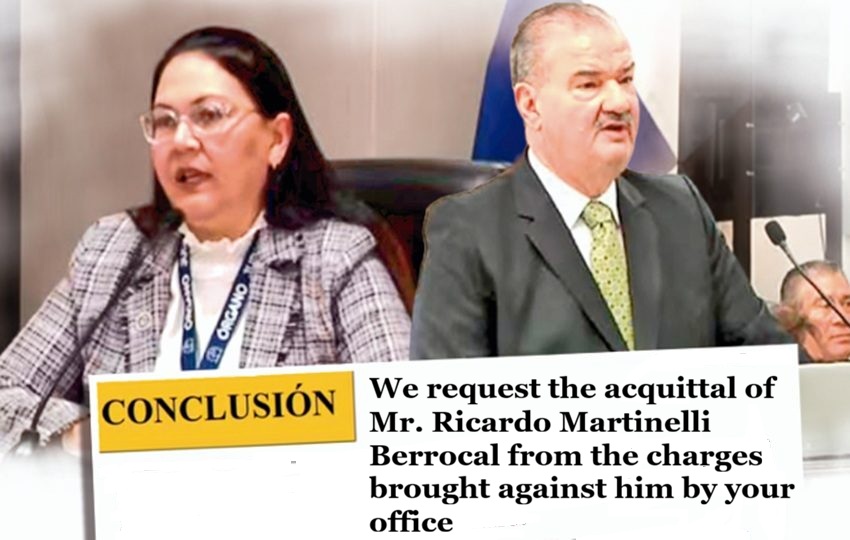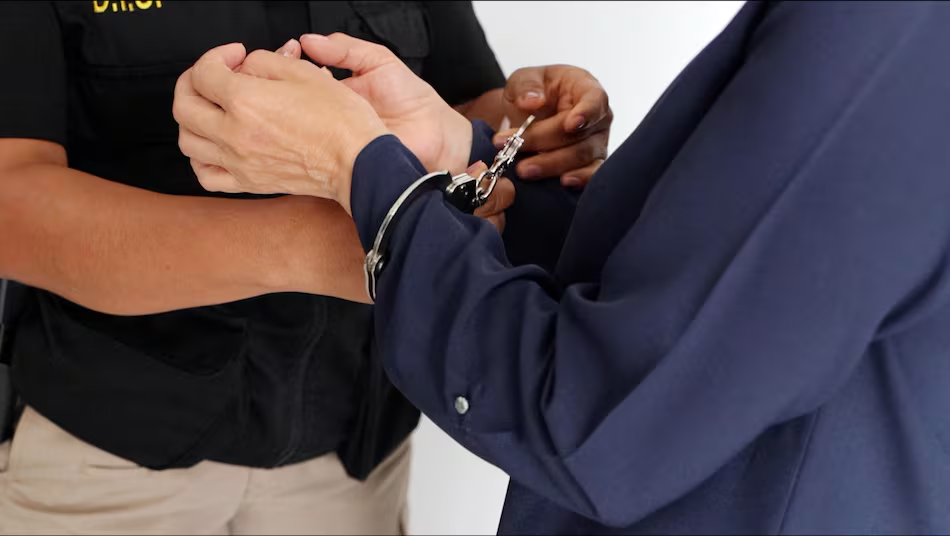Looting, Blockades and Protests and the State of Emergency has Collapsed Bocas del Toro Businesses
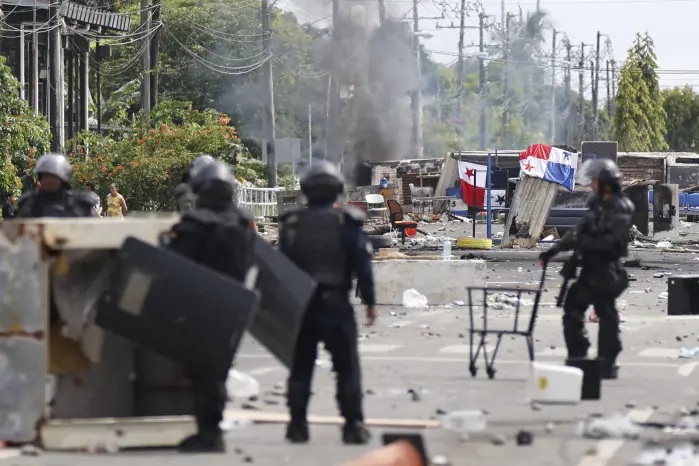
Businesses in Bocas del Toro have entered a state of extreme survival, with staff cuts and struggling to get supplies across the border. The government’s internet restrictions have become a nightmare. On the morning of Thursday, June 19, although fatigued by protesters and the government-imposed blockades with the massive police deployment of Operation Omega, businesses continued to operate. People bought what they could, despite the lack of cash in ATMs. Restaurants were serving customers, and supermarkets were checking out at half their bills.
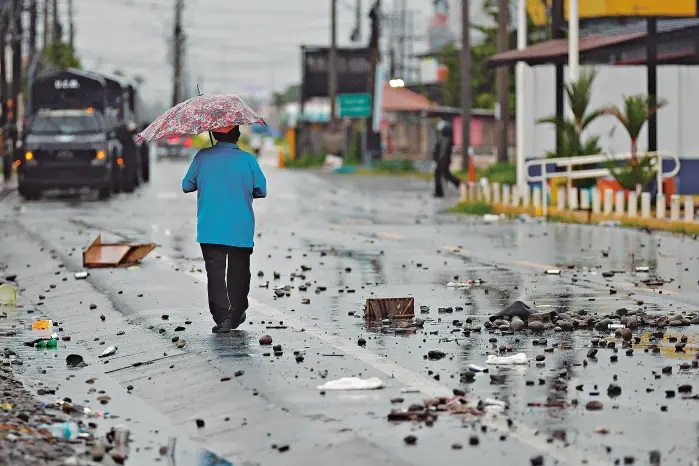
There were no police on the streets. A disturbing silence had settled over Changuinola, something difficult to identify clearly, but felt by everyone. People walked at a hurried pace, taxi and bus drivers stopped passing through checkpoints filled with banana workers, students, and young people from the “precarismo” neighborhoods, which emerged from deep inequality in one of the poorest provinces in the country. The demand had been the same since the end of April: repeal Law 462, which reformed the Social Security Fund and which President José Raúl Mulino refuses to discuss.
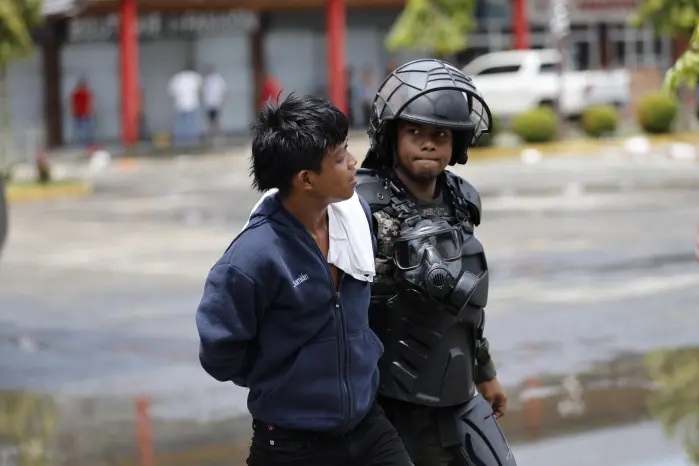
Thus, night fell on Bocas del Toro like a threat hanging in the air, after the first clashes between police and protesters became known near Calvin Byron Stadium, the local baseball center, which had been set on fire by hooded individuals and had been converted into a police barracks and equipment depot days earlier. These events were merely a small spark in the face of what was about to unravel in the city. The most experienced business owners, those who had already experienced economic and political crises in the banana-producing city, couldn’t help but notice that something different was afoot. “I don’t agree with the protests, nor with the closures. This needs to be resolved, but what we saw was senseless destruction,” says César, a small business owner and entrepreneur in downtown Changuinola.
Robberies and Terror
Local media witnessed how a group of masked individuals, around 9 p.m., in the El Cuadrante area across from the airport, began cutting through the cyclone fence protecting the runway. Despite the presence of Border Police inside the airfield hours earlier, at that time no one was there. The only threat was the violence of the masked individuals, who smashed windows, looted stores, and stole batteries and computers from nearby cars. In Plaza Changuinola, a major commercial hub in the city, looting was rampant. Clothing stores, electronics stores, and anything else that could be carried fell prey to piranha-like logic. The following day, Friday, security forces deployed riot squads and armed police, while shop owners, some of whom had dedicated their lives to their businesses, saw their work crumble overnight.

“They destroyed everything in my shop. What did that have to do with the protests? I have to start from scratch,” laments a bewildered Mauro, a small shopkeeper near the center. The government declared a state of emergency and suspended constitutional guarantees, then blocked communications throughout the province. Cut off from communication, merchants in Changuinola were forced to defend their premises alone, armed with sticks and machetes. “This is the law of the jungle, a nightmare where everyone has to fend for themselves,” said Malik, a businessman of Arab origin with a business on the central Avenida 17 de Abril, who, along with other owners, exchanged blows with hooded men intent on robbing them.
Economic Debacle
Business owners contacted by this newspaper indicated that days before the looting, police presence in the city was minimal, despite a significant contingent of officers remaining at the Changuinola police station. What happened between Thursday, June 19th, and the early hours of Friday, June 20th, when a protest that had been proceeding without incident since April 28th escalated into riots led by gang members, according to the official version? Why didn’t the police act at that moment? Without these questions being answered, the province continues to suffer, and the Bocas del Toro business sector is demanding action to prevent the crisis from worsening.
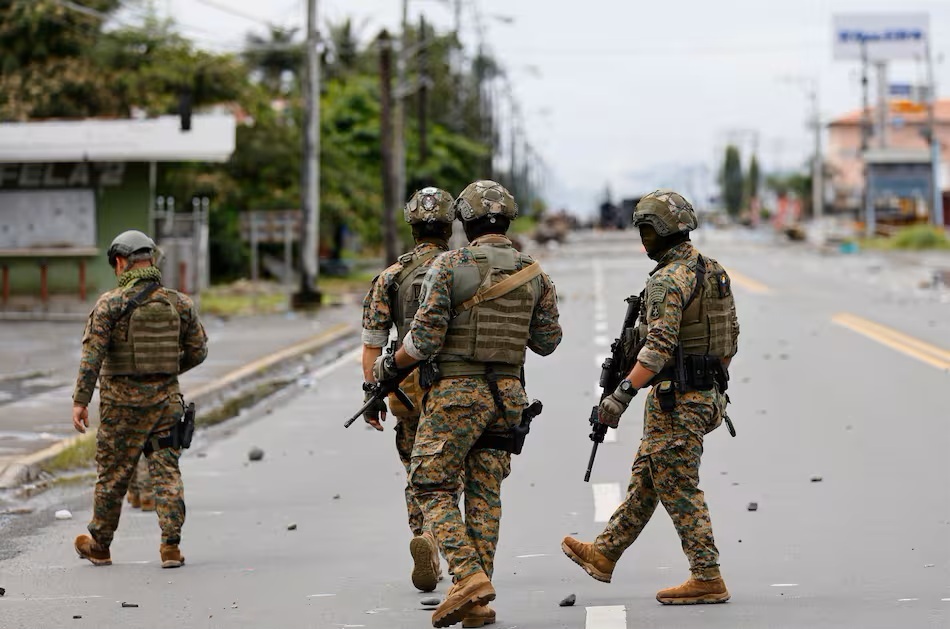
Aris Pimentel, president of the Bocas del Toro Chamber of Commerce, says that businesses in the province are generating revenues of less than 25%, while on Isla Colón—the region’s tourism spearhead—the figure is perhaps as low as 15%. This has forced the suspension of contracts, reduction of payroll, and, in some cases, closure of businesses. The situation was already difficult due to the hundreds of closures throughout Bocas del Toro, but worsened considerably after the start of Operation Omega, in which a total blockade was established by law enforcement. Pimentel points out that the lack of gasoline, food, and supplies has become the priority at this time. The border with Costa Rica is one of the few routes to supply the province and prevents a general collapse.
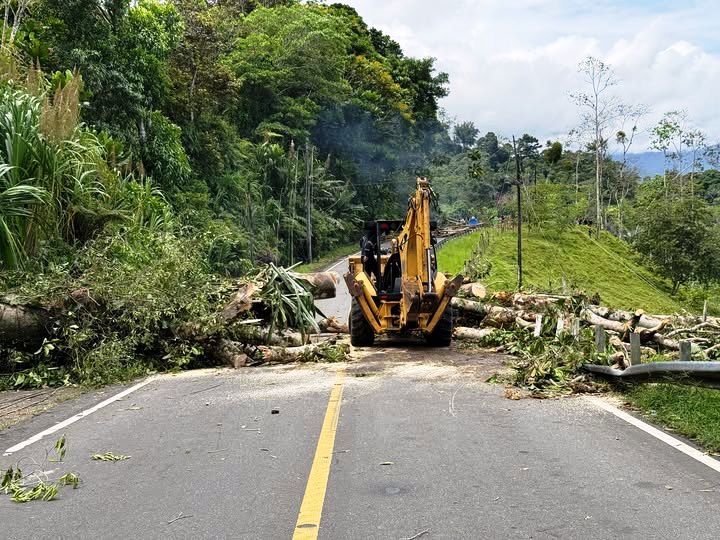
Operation Omega: The Ministry of Security Assures that Apprehended Minors have been Legally Prosecuted
The suspension of operations by the multinational Chiquita and the suspension of salaries for striking teachers, he emphasizes, have contracted demand and the informal economy linked to it, thus worsening the crisis. “The lack of communication is a fatal blow; it has become very difficult to coordinate and bring in supplies,” the businessman says, adding, “We’ve already seen the results of resolving this by force. Dialogue must prevail between the extreme positions of the government, like those protesting, and find a middle ground to save the province,” he added.
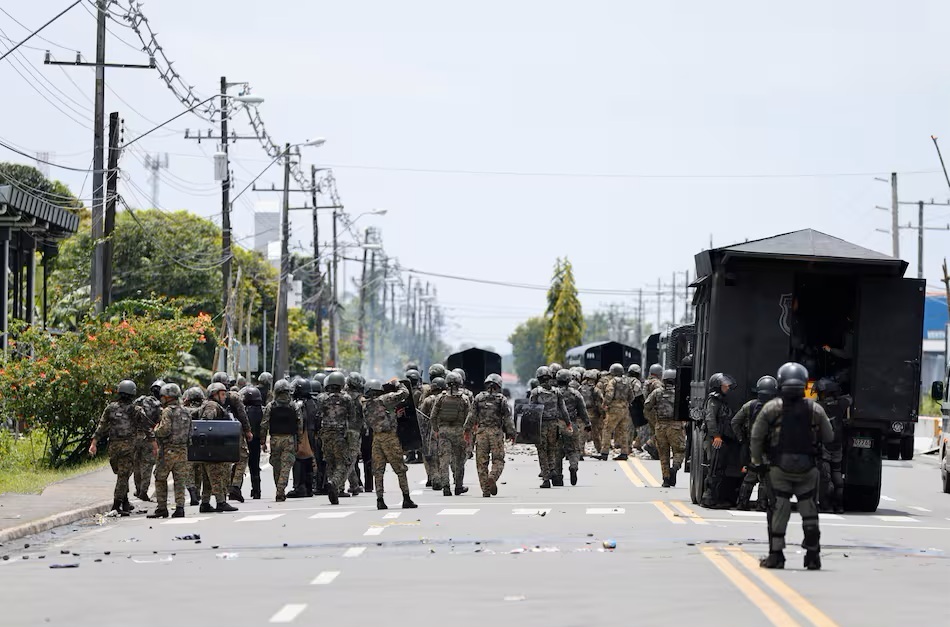
The Ministry of Security defended the actions of law enforcement under the state of emergency in Bocas del Toro and noted that only one person reported missing remains unaccounted for. During a press conference held this Friday, as part of Operation Omega, the Ministry of Public Security offered details about the measures adopted under the state of emergency declared in Bocas del Toro , and responded to recent reports of alleged disappearances of teenagers and the death of a minor. The Secretary General of the Ministry of Security, Juan Carlos Rodríguez , explained that, due to the nature of the state of emergency, some constitutional guarantees have been temporarily suspended , such as the right of those arrested to immediate legal assistance and the 24-hour period to be presented before the Public Prosecutor’s Office.
“This has generated a lot of misinformation. Videos and reports are circulating about alleged disappearances and missing minors. But I want to clarify that the minors are in their respective centers,” Rodríguez said.
According to the details, of the cases reported as missing, three people are in Chiriquí, three in Aguadulce, and only one remains under search, since he does not appear in the records of apprehended persons. Rodríguez reiterated that the state of emergency allows for more in-depth investigations to gather the necessary evidence before submitting it to the Public Prosecutor’s Office, the institution responsible for classifying criminal conduct and requesting precautionary measures from the judicial authorities. For his part, National Police Commissioner Edgardo Núñez confirmed that 21 minors have been apprehended during the operation. However, he assured that all were brought before the competent authorities, specifically before juvenile and adolescent judges.
“Some of these minors have already been released to their parents, but all have gone through the corresponding procedures. The investigations are still ongoing,” he added.
Regarding the complaint about the death of the one-year-and-eight-month-old girl, who allegedly died from tear gas inhalation during the operations, Rodríguez emphasized that the Public Ministry is leading the investigation, not the Ministry of Security.
“We conducted an internal investigation, and the reports show that we weren’t even operating in that area at the time the reported events occurred. The accusations, while serious, lack legal basis,” he said.
The conference comes amid growing criticism from human rights organizations and families of detainees, who have questioned the transparency of the process and demanded safeguards, especially for minors. The state of emergency was declared on June 20 and has been extended due to the persistence of blockades and riots related to the rejection of Law 462, which reforms the Social Security Fund.
What is Habeas Corpus and Why is it a Key Right in the Bocas del Toro Crisis?
Given the state of emergency declared in the province of Bocas del Toro, habeas corpus was invalidated. Detainees cannot request an investigation into the legality of their arrest and, therefore, their release. Lawyers and public defenders criticized this measure. Habeas corpus is a legal remedy that seeks to protect a person’s freedom from arbitrary detention. A court must quickly determine whether the detention is justified or not. If the detention is unlawful, the citizen must be released immediately. Interest in this constitutional figure has gained momentum after multiple reports of arbitrary arrests during Operation Omega, a government-sponsored operation in the province of Bocas del Toro to end protests that have resulted in roadblocks.
How does Habeas Corpus Work?
According to Article 23 of the Constitution, habeas corpus may be filed immediately after arrest and regardless of the applicable penalty. This petition may be filed even when there is a real or certain threat to bodily liberty, or when the manner, conditions, or place of detention endangers the physical or mental integrity of the person deprived of liberty. The procedures for this action fall under the category of “summary proceedings,” which require speed and simplicity when imposing this appeal; furthermore, it cannot be suspended during non-business hours or days.
This right may be claimed in writing through a request form addressed to the Judicial Office, including the general information of the detained person, the name of the authority or official who ordered the suspension of the individual’s right to liberty, if any, the name of the authority guarding the citizen and the pretext or cause of the detention, as well as the actions that explain the illegality of the situation. Habeas corpus can also be imposed by telephone. A public defender will defend the detainee if the request was filed by the detainee or a private representative.
Once the appeal is filed, a habeas corpus ruling is issued, and the authority or official being sued is notified. They must respond within a legal period of two hours. Once their response is received, a hearing is immediately scheduled, which is conducted by three judges of the Superior Court of Appeals. If the detention is declared illegal, the person must be released immediately. If the habeas corpus petition is denied, an appeal may be filed, which will be decided in a hearing before the Criminal Division of the Supreme Court of Justice (SCJ).
Bocas del Toro in Crisis
On June 20, 2025, the Cabinet Council declared a state of emergency, as provided for in Article 55 of the Constitution, for the province of Bocas del Toro. This order suspended constitutional guarantees restricting freedoms of movement and residence, protection against arbitrary detention, and freedoms of thought, expression, assembly, and association. That is to say, the writ of habeas corpus was disqualified in this region, something considered illegal by various legal experts and later reinstated with a new decree last Tuesday, June 24.
This comes in the wake of protests in the first province over Law No. 462, which reforms the Social Security Fund (CSS). According to the government, Operation Omega has left more than 370 people detained, including minors. The National Police issued a statement that same day, reporting that 18 minors had been detained in Bocas del Toro for alleged “acts of vandalism.”
Breach of Warranties?
The suspension of habeas corpus in the midst of this social crisis sparked opposition from various organizations, which argued that the suspension of the aforementioned remedy violates the American Convention on Human Rights, to which Panama is a party. In turn, the Ombudsman’s Office demanded that the National Police issue an urgent and detailed report on the adolescents detained during the state of emergency, reiterating that no minor should be the victim of arbitrary detention, isolation, or abuse. There are more than six habeas corpus petitions filed before the Supreme Court of Justice for the hundreds of detainees in Bocas del Toro. On Tuesday, June 24, Félix Paz, Emanuel Castro, and Carlos Bichet filed a constitutional motion against this Cabinet decree.
“Habeas corpus cannot be suspended and sets a precedent that our country cannot act solely under domestic law, but must also respect inter-American standards, conventional standards on the protection of human rights,” Bichet told Estrella de Panamá. From Chiriquí, José Luis Santamaría is one of 20 lawyers trying to advocate for the human rights of the detainees, who are spread across the country. On behalf of the detainees, the lawyer filed a habeas corpus petition, but the Chiriquí Court of Justice did not review it due to lack of jurisdiction and the fact that “it should have been filed before the Supreme Court.”
Santamaría said the National Police did not allow him to speak with the detainees, who were taken to Chiriquí on “superior orders.” From Panama City, Gonzalo Mocada Luna stated that the decree suspending habeas corpus “was completely illegal; they couldn’t have done it because Panama is subject to treaties and conventions that prohibit suspension.” Furthermore, the jurist believes that knowing the current location of the detainees is essential for these proceedings; however, “the authorities have not made it clear,” he told the dean. According to the latest decree, the state of emergency in Bocas del Toro is to end on June 29, 2025.



